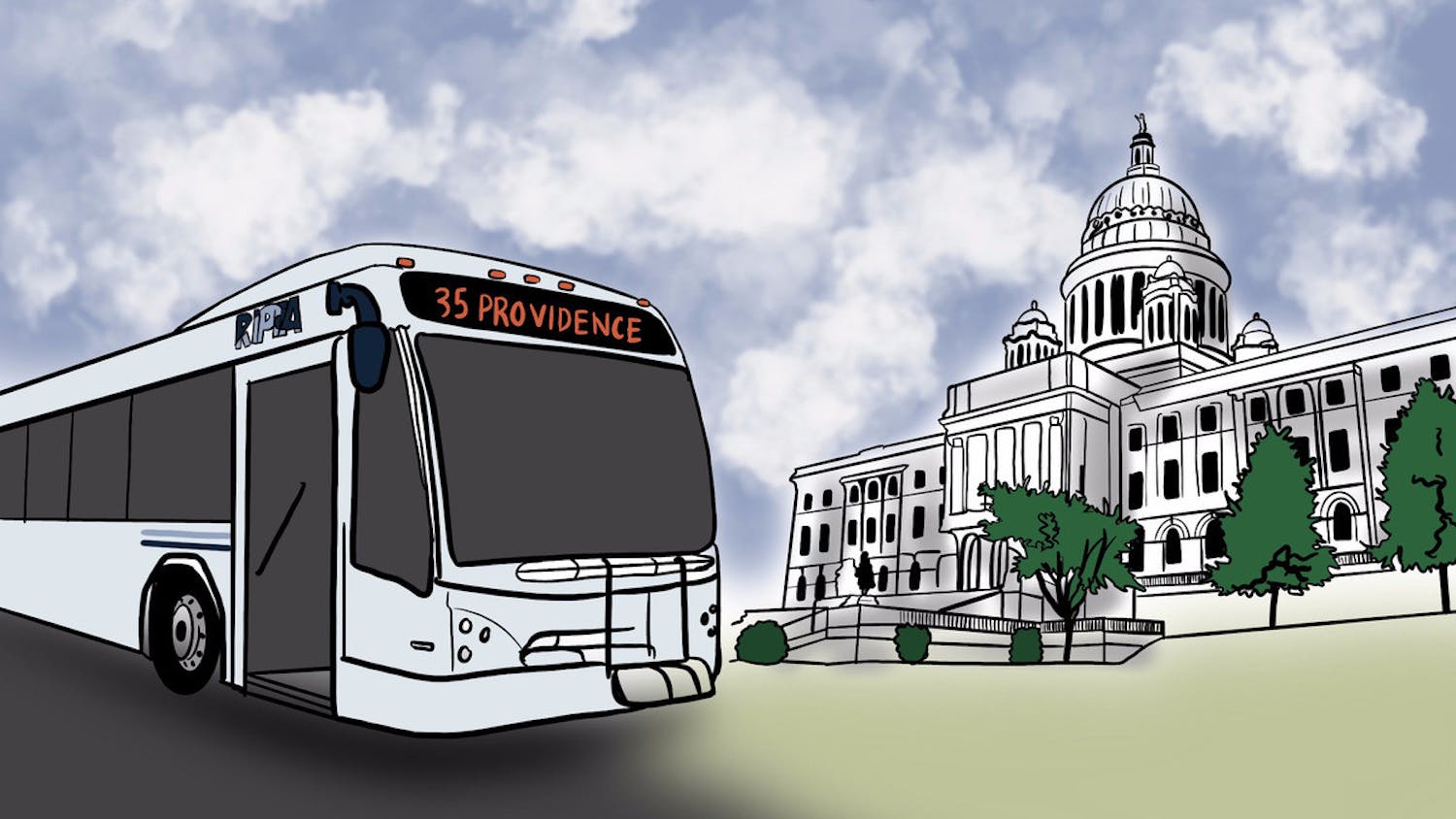While the state Senate and House reconcile differences in two versions of a bill to close a loophole that allows indoor prostitution in Rhode Island, Providence Mayor David Cicilline '83 has instructed the city council to move ahead with an ordinance banning the practice within city limits.
Under the proposed ordinance, prostitutes, their customers and facilitators would all be subject to up to $500 in fines and 30 days in jail. According to a Sept. 1 press release from the mayor's office, this is the maximum penalty allowed by law.
Karen Southern, Cicilline's press secretary, said the legislation targets "those who profit from prostitution" rather than prostitutes themselves. The language of the proposed ordinance does not actually provide different penalties for prostitutes and proprietors of brothels.
According to City Solicitor Joseph Fernandez '85, whose office drafted the ordinance, the law is "evenhanded in its treatment" of prostitutes, customers and proprietors. But "depending on the circumstances, it would be up to the police and the prosecutor who to charge and to what extent," he said.
Councilman Michael Solomon of Ward 5, chair of the Committee on Ordinances and a co-sponsor of the bill, said prostitution in Providence has "gotten out of hand in the past few years," prompting the city to act.
Solomon said he does not predict any opposition to the bill within the city council. But outside of the council, opinion is mixed.
In July, Steven Brown, executive director of the Rhode Island chapter of the American Civil Liberties Union, told The Herald "if individuals are engaged in consensual sexual conduct, it shouldn't be the state's business." Instead, government "ought to be focusing on providing those women the resources to help find them other gainful employment," he said.
Solomon said while he would not support similar penalties for victims of human trafficking, it was not problematic to send prostitutes who break the law to jail under the proposed ordinance.
The issue of criminal penalties for prostitutes is the central difference between the House and Senate versions of the bill. The House version carries criminal penalties for a first offense, while the Senate version does not allow for criminal penalties before the third offense and imposes stiffer penalties on the proprietors of brothels than it does on prostitutes themselves.
Though state law forbids public solicitation and the operation of brothels, it does not explicitly deal with the act of prostitution. In 1998, the state Supreme Court ruled that prostitution was legal if it took place indoors. In the United States, only Rhode Island and some areas of Nevada do not ban the practice.
Motions have been introduced in the legislature banning indoor prostitution in past years, but this year is the first that Rhode Island's House and Senate have both passed bills closing the loophole.
State Sen. Rhoda Perry P'91, D-Dist. 3, whose district includes College Hill, said a bill that does not have criminal sanctions for a first offense "will not go this year." Perry, who has been working with House colleagues on a compromise bill, said she has been working to introduce language into the bill about the need for social services to support women in the sex industry.
Perry, who in July told The Herald that criminal penalties for prostitutes place "an unfair and heavy burden on the victim," said she does not know if she will vote in favor of the eventual compromise bill, which she believes will carry criminal penalties. Nonetheless, Perry said she believed the compromise version of the bill will pass.
Solomon predicted the city ordinance will pass by the first week in October.
Perry predicted the Rhode Island legislature's bill would come to a vote less than a month later. If that bill passes, the state law will supersede any city ordinance.




